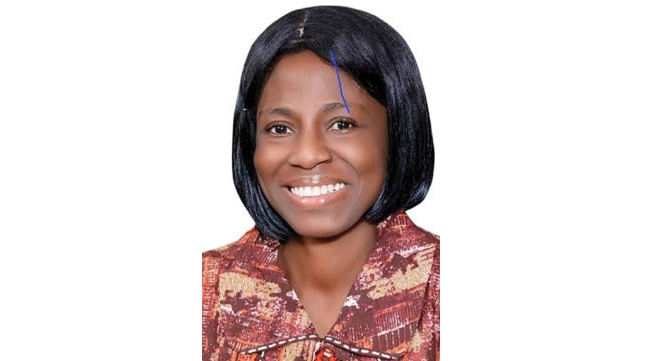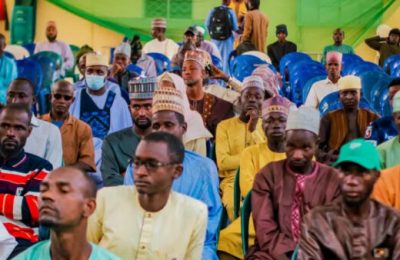
Dr Oluwaserimi Ajetunmobi is a public health expert and the Oyo State Health Commissioner. In this interview with Sade Oguntola, she speaks to issues pertaining to the healthcare provision in the state, including steps to tackle the drug price hike, the depleting health workforce, and the HPV vaccine rollout, among many other issues.

Heat and ailments associated with the hot weather, especially for the elderly and individuals with sickle cell disease, are big issues. What is your advice?
High atmospheric temperatures cause a change in the thermoregulation of the body. As a result, these groups of people may experience conditions such as heat rash, heat exhaustion, heat syncope (fainting), and heat stroke. There could be muscle cramps from dehydration. A heat stroke is a medical emergency because it could lead to mental confusion, delirium, convulsions, loss of consciousness, and coma.
But by and large, it is advisable for everyone to drink enough water. We preach that adults take a minimum of three litres of water per day, which is equivalent to six sachets of packed water. It is important to drink water liberally throughout the day. The goal is to replenish the body’s fluids. And if it is possible, we can have showers frequently to cool up the body or stay under the air conditioner or the fan to cool off. Wearing light clothing to allow air to penetrate the body is also recommended.
Are you, as the health ministry, trying to tackle heat and its related complications in any way?
Basically, at any gathering where we find ourselves, we also talk about the need for everyone to take ownership of their health.
Part of what we preach is for people to have a healthy lifestyle. Of course, a healthy lifestyle in this case includes wearing clothing that is suitable for the particular weather, shielding the eyes from the sun’s rays, and liberal fluid intake.
People no longer talk about COVID-19. Is it gone?
Not that COVID-19 is extinct, in my opinion. But unlike in 2020, it’s not a pandemic anymore, and we are testing as before, and with the variants that we have, it can be missed as it may present as the common flu. But we still go out to some public places, like the market, to test people for COVID-19 when occasions warrant it, but not as effectively as before.
What are the maternal mortality and infant mortality rates for Oyo State? What are the contributing factors to these figures?
The national demographic health survey of 2018 puts the infant mortality rate at 41 per 1,000 live births. Similarly, the United Nations Development Programme (UNDP) puts our maternal mortality rate at 148 per 100,000 live births.
What are the contributing factors to these cases? The top killer of children in Oyo State is malaria. Other causes of death in children include complications of preterm births, measles, pneumonia, and diarrhea. Unfortunately, some of these are vaccine-preventable diseases. That is why we preach that mothers should get their children vaccinated according to the National Programme on Immunization. We also encourage exclusive breastfeeding in the first six months of life and continuing breastfeeding until two years. This helps the child develop immunity to fight many infections.
In a similar vein, poverty, low social and economic standing, and ignorance are contributing factors to women’s deaths. Septic abortions—where women with undesired pregnancies procure risky abortions—are the most common. Excessive bleeding after delivery is the top killer of women. Others include complications from delivery and high blood pressure during pregnancy leading to pre-eclampsia or eclampsia. Hypertension in pregnancy, when not recognised early enough and well managed, can cause death. We encourage our women to register where there are skilled birth attendants and blood transfusion services.
Oyo State is joining states in Nigeria to have HPV vaccinations rolled out for girls between the ages of 9 and 14. What are the steps in place to ensure its acceptance across the state?
The steps put in place include training and retraining of healthcare workers on communicating with people about the HPV vaccine. There are myths and misconceptions about this vaccine. We’ve had people say it can cause infertility in girls, but that is not true. So to clarify that it is not related to infertility, we have released jingles to that effect. This will actually benefit our girl child. It is about preventing cervical cancer. We know that the human papilloma virus (HPV) causes cancer. Thus, community involvement continues, even in places of worship like churches and mosques. Additionally, community informants visit our mothers to provide IEC materials about the vaccine. So, the whole essence of getting this vaccine is to prevent our girls from coming down with cervical cancer later in life, not because of sexually transmitted infections.
There are cases of measles, meningitis, and Lassa fever in different places in Nigeria. What is the state doing regarding these diseases?
These illnesses are all listed as priority diseases. Measles outbreaks in Oyo State have largely occurred in hard-to-reach and security-compromised areas. Some of them are Fulani settlements. What we do is get security personnel whenever we go to such areas.
However, in order to reach such places and be able to inform people about the value of vaccinations, especially for measles, we still need more support from our partners in the form of security personnel and motorcycles, as some areas are not motorable. Furthermore, there is constant training and retraining; in fact, training is the main focus of the COVID-19 emergency preparedness fund that was made available to the state. In addition to teaching community informants, disease surveillance notification officers, and health educators about these priority diseases—such as Lassa fever, diphtheria, and measles—we have also been teaching them the importance of vaccination, hygiene, and the need to report any such cases for prompt interventions.
What will be your advice to Nigerians on coping with the drug price hike, especially those with non-communicable diseases like diabetes?
In light of the recent increase in prescription prices, I advise people with non-communicable diseases like diabetes and hypertension to use generic medications instead of branded ones. Generic drugs are cheaper than brand-name ones. Because of the situation in the country now, Oyo State, as part of the Omituntun 2.0 agenda, is having a drug revolving fund to increase access to drugs in our health facilities. In addition, we are being urged by the Federal government to create a drug management agency that all residents of the state can use to obtain real and affordable pharmaceuticals. The manufacturers will sell it to the state, which will thereafter be distributed to every healthcare facility. Since there are fewer intermediaries in the medicine distribution system, the price will be somewhat lower. Our drug management agency bill has already reached the last stage of development. The drug management agency will also be open to private facilities and individuals with a doctor’s prescription to procure drugs. We will enforce that medications obtained from this agency cannot be sold for more than the agency-specified price.
How is Oyo State coping with the exodus of health workers from its health service?
It has not been easy, I must confess, because in an institution like a health care facility, for example, we need to have 20 doctors and we have four doctors doing the job. Of course, there will be burnout for the remaining health care providers.
How many of your health care team members have emigrated since the JAPA syndrome started?
I can’t count it because it keeps increasing every day. However, we had suggested to the state director of the National Youth Service Corps (NYSC) that all youth corps members who are health workers be assigned to the Oyo State Ministry of Health, where they can be posted to our facilities as a stopgap solution. Depending on what each medical facility needs, they can be assigned to different locations.
Also, Governor Seyi Makinde has approved that we recruit about 232 doctors, nurses, pharmacists, physiotherapists, and medical laboratory scientists. Already, we are working on carrying out this directive. We also have approval for exit replacement for all health workers who left the service from 2021 to date.
How do you plan to ensure that politicians do not seize these job chances for their offspring—including those who are unqualified—and ignore those who volunteer at these facilities?
Governor Seyi Makinde emphasised up to four times that everything should be done on merit. I am not disputing the fact that there will be a discretionary list, but for fair play, they will all undergo CBT examination and interviews. It will be based on merit in most cases.
The Oyo State administration had earlier pledged to build a geriatric centre in order to improve the state’s senior citizen care. How are you doing with that commitment?
Yes. We’re still working on it. The initial location for the planned geriatric centre may not be suitable. Senior citizens require large spaces. For the geriatric centre, the former Jericho General Hospital is being considered. The Ilesha geriatric centre was built by the community; Oyo State can likewise do the same. I’m thus pleading with Oyo State’s kind residents and benefactors to endorse our idea of providing older persons with a location where they may get care as well as engage in leisure activities. Even the governor may leave a legacy as the owner of a state-owned geriatric centre.
Read Also: Only telcos, banks, NSE, internet service providers affected by Cybersecurity levy — Reps







